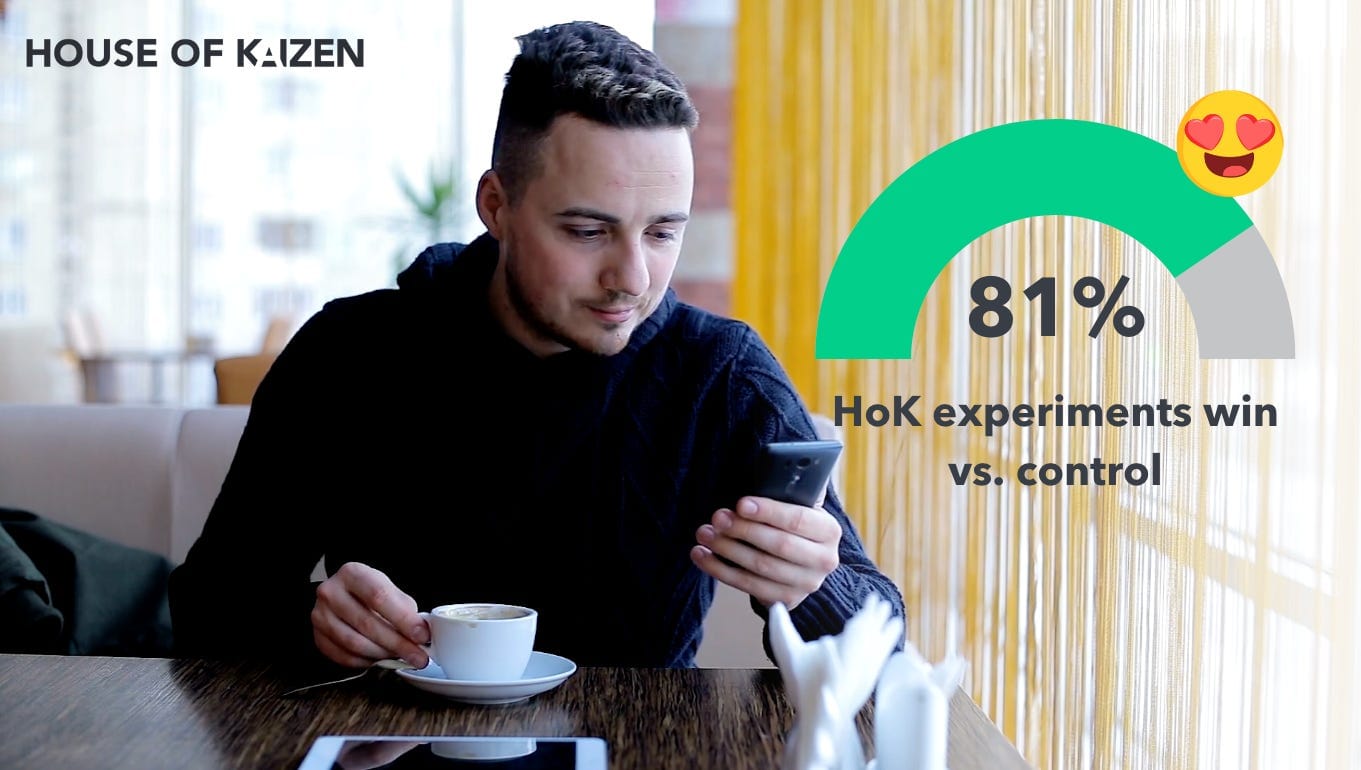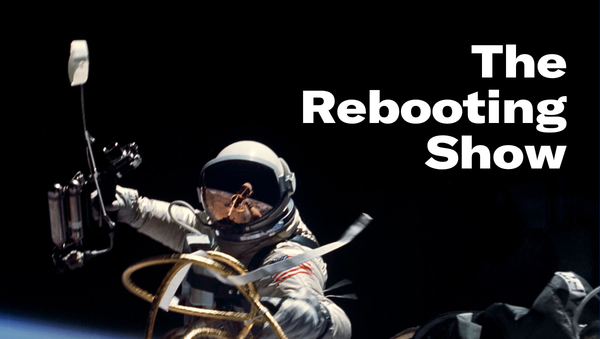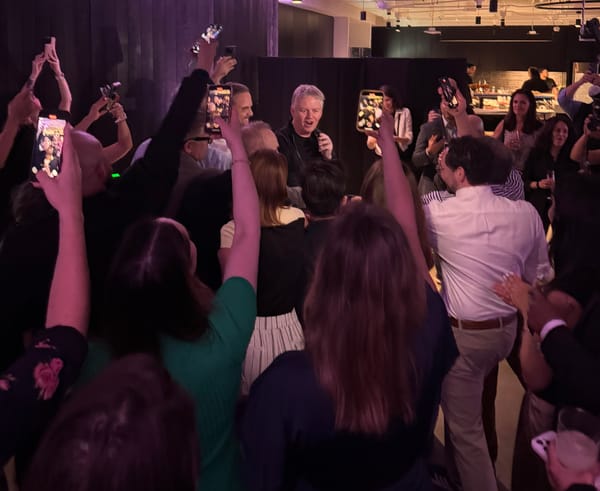Interface shift
Moving the commanding heights
Thanks to everyone who has downloaded The Rebooting’s research into the state of publisher subscription programs. Check it out if you haven’t.
Today, I’m returning to the topic of interface, and how all signs point to a massive shift in the interfaces that have defined the past generation of media. In Recommendations, BI is back, eSports were a ZIRP and more. First up, a message from House of Kaizen.

Diagnose your net-growth opportunity

We’re all in pursuit of strong and consistent growth to make our media brands lasting businesses amidst the push and pull of revenue requirements, shifting audience consumption behaviors, and turbulence in the market. So what does good growth look like in this era of media and publishing? House of Kaizen has a Growth Diagnostic used by publishers, and other recurring revenue products, to identify and drive sustainable growth with audience-first experience optimization. Through their decades of working with the world’s best subscription products, they know what creates sustainable net-growth and will help you to find better alignment between your audience expectations and the product experience.
Recommendations
BI is back. We will agree to forget the historical injustice that was visited on a classic digital media brand in the name of scale. Now, bring back the slideshows. Henry Blodget’s departure as CEO marks the end of a remarkable run. The multiple he got from Axel Springer will forever be legendary. (Business Insider)
ESports as ZIRP. I find people constantly trot out the overwhelming size of the video game industry – and how it’s far bigger than the movie industry – so often because they believe it is surprising. And that’s because video gaming is a strange form of media that, in my view, is the rare case when it’s a bigger business than cultural force. The impact video games has on culture is subtle and atomized because there’s no center, no mass experience. The rolling failures of eSports highlights this, and makes the dynamics a harbinger for the overall media industry. (Decrypt)
The newsletter winter is coming: There’s too much of everything, and a rationalization of the “newsletter space” is overdue. Too many arbitrage plays without much in the way of unique differentiation. And the inbox is becoming a “wasteland.” I don’t believe in the death of X tropes, but I do think most trends end up retracting to a normal level. People building real brands will diversify from email as a delivery vehicle. (Matt Karolian)
Something interesting: I’m not sure if China-style live shopping will ever take off in most markets.
Win a Webby: Reward the long nights, and prove your team is the one to beat by winning a Webby. The final entry Deadline is Friday, Dec 15. Enter now. (Sponsored – The Webby Awards)

Video is a game changer
For many publishers, achieving 100% monetized video coverage on your site is not an easy task. Read more about why it's not as difficult as you might think, and the benefits you can expect with having video on every page - not only higher ad revenue but also increased user engagement and article recirculation.
Interface shift
In a world of limitless content, interface is the commanding heights of media. The only way to make sense of the sheer amount of information is through filtering that invariably happens at the interface level.
There’s a reason that Google was cutting such generous deals with Apple. With the iPhone, Apple controls the interface and therefore can extract tolls. Google knew this game well, after all its meteoric rise isn’t so much a story as unbridled innovation as much as near flawless execution of using its dominant market position as the interface to the open web to extract all manner of transaction fees.
Barry Diller gets this. In 2019, Barry wrote Google chief business officer Phillip Schindler a searing email. The IAC chief noted that Expedia’s subsidiary, VRBO Travel, saw its search spend go from $21 million to $300 million in five years while receiving the same amount of traffic. “The only conclusion is Google has systematically moved every lever in its hegemony over search to disembowel our business.” Translation: This business model is closer to owning the only parking lot next to the beach in a resort town than a media business.
That’s the kind of thing you can do when you control the interface to the open web. There is an inexorable shift in two key interfaces, search and the phone, as the prevailing winds in interfaces shift to being more “natural.”
An exec recently told me of a publisher they’re advising that is moaning over the sharp erosion of search traffic. Publishers have broadly suffered an annus horribilis that didn’t snap back in Q4. This exec said their advice was blunt: “Wait until it happens to search.”
In truth the now advanced erosion seen from social platforms is coming slowly to search. If Barry didn’t like the price he was paying for traffic, he’s gonna prefer that to when the traffic disappears. The 10 blue links of search was a paradigm as flawed as the third-party cookie. It wasn’t a secret that what people really wanted from search was answers, not links to hunt for them. It’s why Ask Jeeves existed. The timing and tech was just off, not the inexorable shift from clicking links and then back buttons. It’s hard to believe we will go back to typing specific brand URLs into a browser to visit the homepage. That’s nostalgia.
By the same token, the dependence on the phone is silly. It is not meant to play the role it does as people’s interface to the world. That it is even a phone – meant for making phone calls – is a tell. The attempts to supplant that have been mostly farcical. Google Glass was absurd. The Snap glasses were not much better. Smart watches haven’t replaced the phone. And the new AI pin has inevitably been panned and snarked.
But underneath it all is a shift. The only question is timing. The role of media and brands will be different in a world where agents replace apps and answers replace links. Publishers, particularly those reliant on text on page, are gas station owners in a shift to EV. Troy wrote about this coming shift in much more detailed manner at People vs Algorithms:
“In the AI mediated world the process of finding and sorting and evaluating and comparing is displaced by the smart computer. Service is automated. Markets become more efficient. Brands struggle to reinforce their uniqueness.
What Troy is getting at, and we’ll discuss this later today in a recording of this week’s People vs Algorithms podcast, is the tide is shifting to develop something of a “universal interface.” The chat interface is typical sci-fi stuff. Tell the Super Brain what you want to do, the Super Brain goes out and gets it done. No downloading apps, no combing through search arbitrage sites, no “skip to recipe” buttons. There’s a reason big publishers are lawyering up instead of frothing at the mouth to be among the raw materials parsed by the Super Brain.
In times of great change, best to focus on what doesn’t change. For Jeff Bezos, that meant not trying to predict the future — nobody knows – but on what will remain the same. For Amazon, it meant people would continue to want good prices and immediate satisfaction. For publishers, starting at such first principles means focusing on what won’t change in the AI era, such as the need for trusted information with a unique point of view, help making sense of complicated issues or areas, the human need to congregate and more.
Commodity text content has declining economic value. Evergreen content optimized for search has been, on a unit basis, been the most lucrative part of digital publishing. That economic value will inevitably erode.
Viewing the Humane and OpenAI demos, I was left believing voice, literal and figurative, is one thing that will not go away. It’s one reason why I dismiss doomerism over podcasts. Maybe the format morphs and bad podcasts get crunched, but a shift from text to voice seems inevitable. Literal voice is an important trust and empathy signal. It’s why any texting argument is best to take to a phone call because people are more reasonable. The internet is an angry place in large part because it’s easier in text.
There was an idea during the pandemic that in-person gatherings would go away. That was a bad bet because it was a bet against something that doesn’t change. No souped-up webinar is going to replace getting like-minded people together in person. There’s a reason that “virtual” leads are priced so much lower than getting a company in a room with a prospect. That doesn’t change. Community is the last refuge.
Finally, I don’t think humans trusting other humans vs faceless brands changes. It’s in our nature. Sure, we’re tribal and often do horrible things to other humans, but overall human nature has a good track record of avoiding extinction. And that’s largely by trusting others, maybe not broad groups but on an individual level. I don’t see that changing.
Thanks for reading. I keep wanting to revisit my piece on twilight of the brands and the feedback I got. Next time. Be sure to send your feedback on interfaces and anything else by hitting reply. I hope to survive the email newsletter winter.




